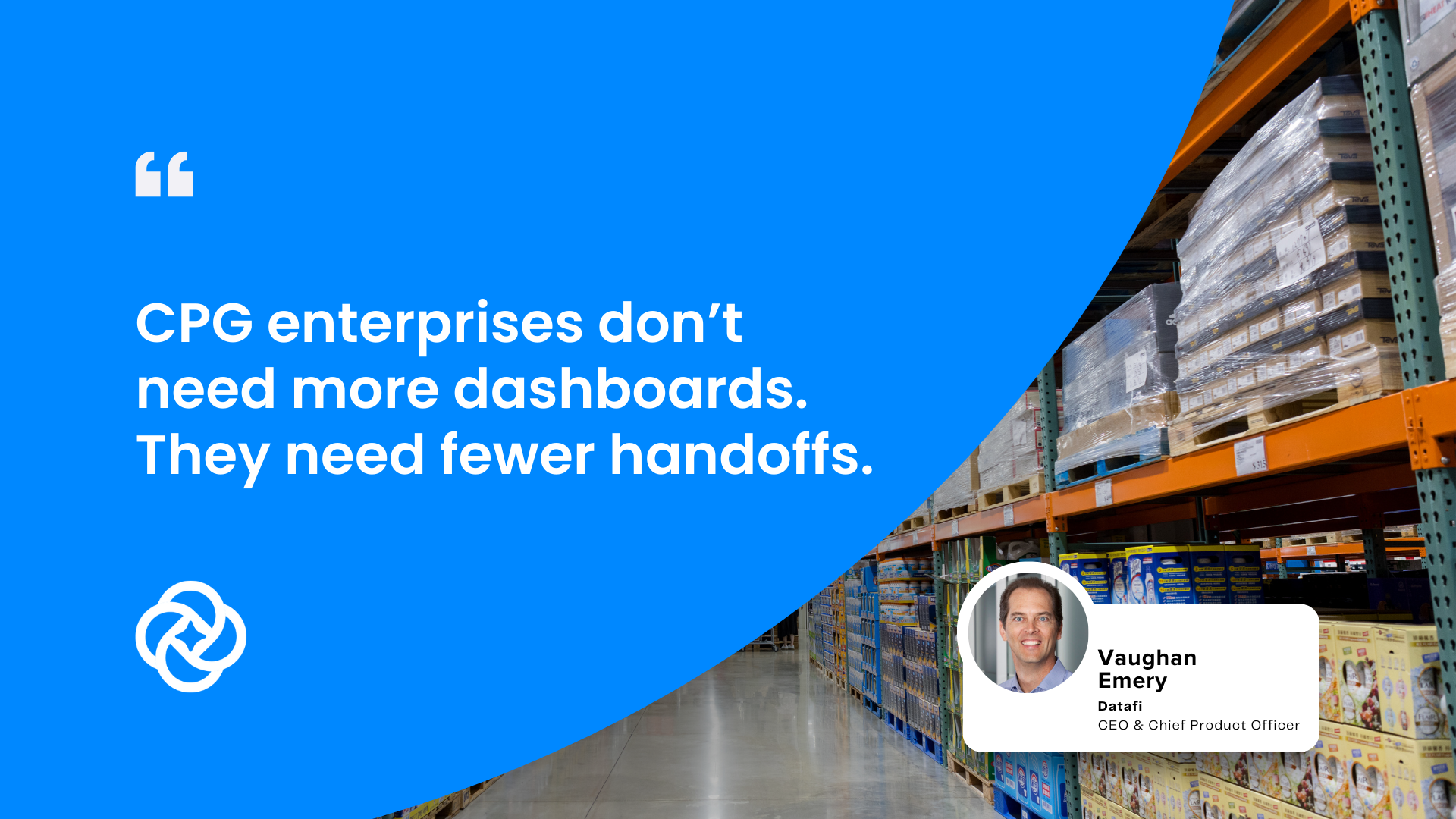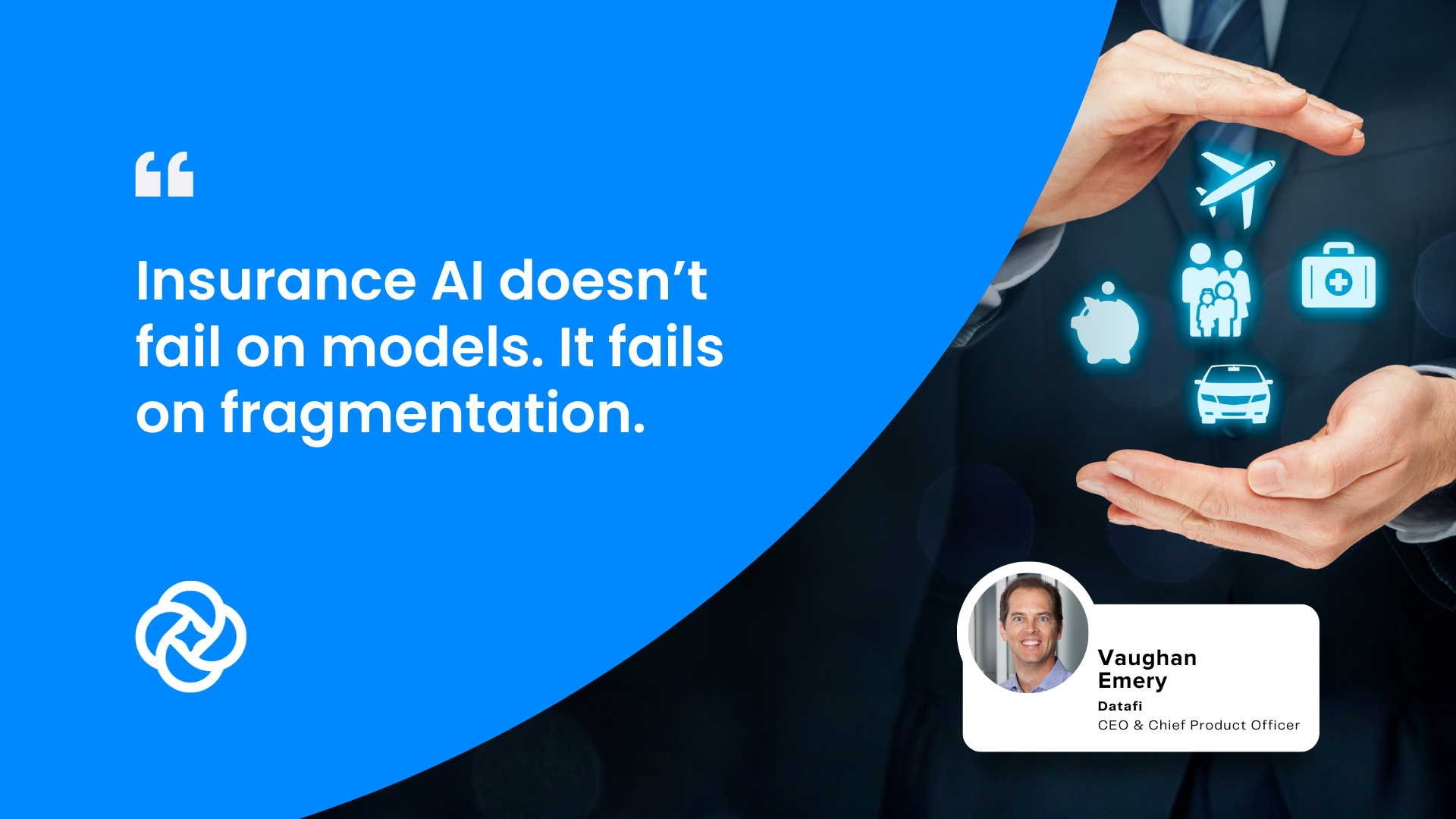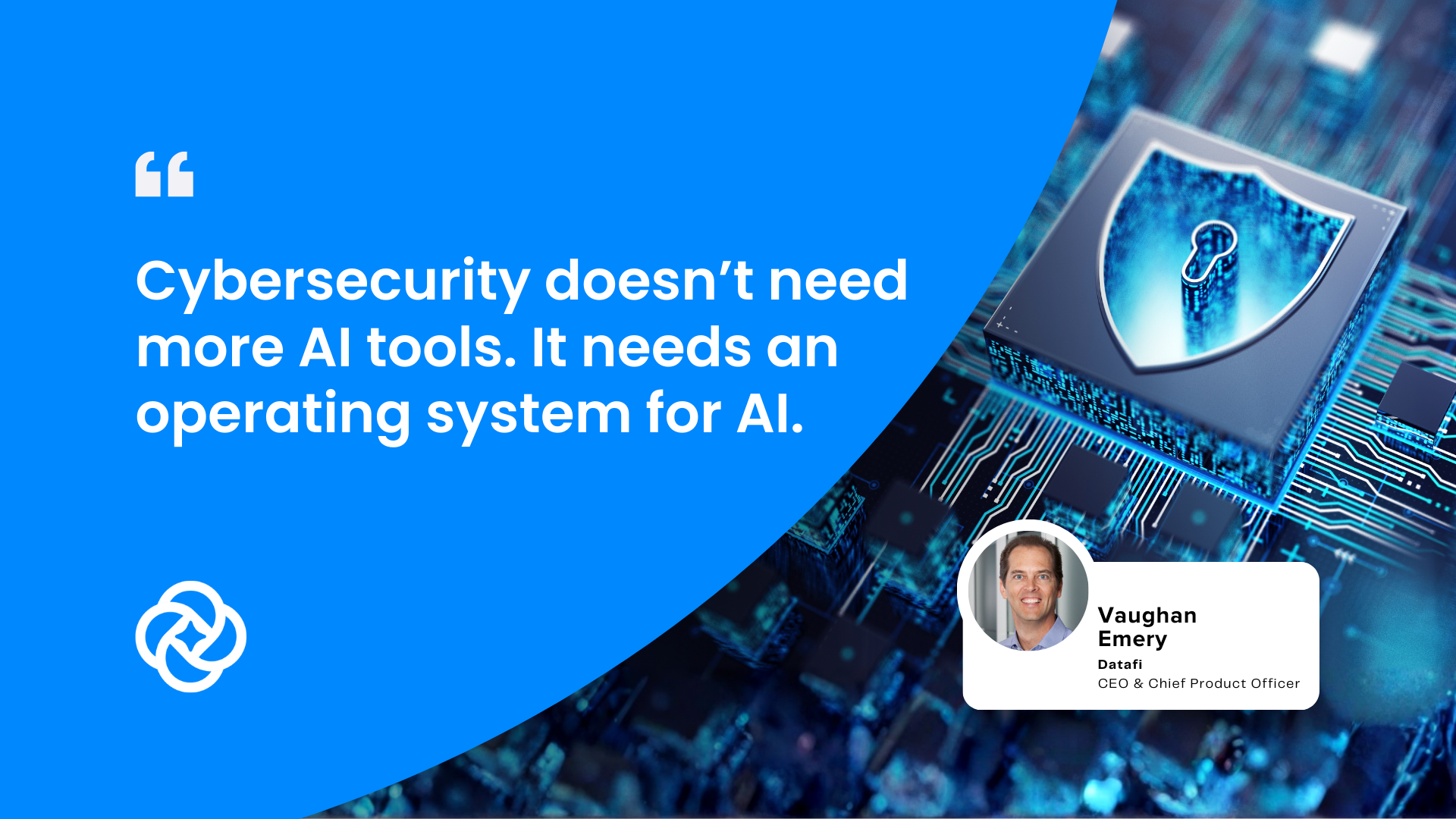How Datafi Helps Meet the Need for Responsible AI

As artificial intelligence (AI) becomes more essential for organizations to adopt, questions are properly emerging about how the power of AI can best be used responsibly. Across the world of business there is a growing awareness about the need for responsible AI, though the challenge remains: How is responsible AI achieved?
A first question might be: Just what is responsible AI?
The consulting firm PwC provides a good working definition:
“Responsible AI is a set of practices that help create confidence in decisions, balancing the risks and rewards of adopting AI technologies and solutions. Responsible AI helps AI initiatives succeed more quickly, often with fewer issues, pauses and mistakes.”
A follow-up question might be: How do organizations achieve responsible AI?
The Harvard Business Review recently published an article headlined “Research: How Responsible AI Protects the Bottom Line,” which begins:
“Eighty-seven percent of managers acknowledge the importance of responsible AI (RAI), according to a 2025 MIT Technology Review survey. This consensus seems to span the AI ecosystem, from startups to tech giants, each voicing a firm commitment to the principles of responsible AI. At first glance, one might be tempted to believe that we are on the brink of an ethical AI renaissance. However, only 15% of these same managers feel well-prepared to adopt RAI practices.”
PwC identifies four key elements required for responsible AI:
· Personalization: The capacity of an AI product to tailor its functions, responses, and interactions to the individual user’s preferences, history, and needs.
· Privacy: The assurance that an AI product protects user data and upholds confidentiality.
· Understandability: The clarity with which an AI product can outline the rationale behind its outputs, making its workings understandable to users.
· Auditability: The ability to trace and review the processes and decisions made by an AI system, incorporating human oversight.
Datafi, which uses AI to provide seamless and secure data access across an organization’s entire data ecosystem, agrees with PwC, as our platform addresses all four elements required for responsible AI.
How Datafi Provides Personalization
Datafi personalizes AI for each employee. Everyone from entry-level employees to executive-level leaders can use Datafi to transform data into use-case-specific data apps and AI agents to meet their specific needs.
Datafi business AI ensures workers find their own answers using common business terms and simple plain language requests that are transformed into powerful code able to use any data within an organization, no matter how or where it is stored. It can find and use data to answer questions from databases, CRM, ERP, Salesforce, PDFs in file servers, e-mails, and more.
This means the more a person uses the Datafi Agent, the more customized it becomes to their needs. It is like giving every employee their own personalized AI assistant.
How Datafi Protects Privacy and Security
Datafi is designed from its very foundation to provide privacy and security, as well as admin-defined policy and governance. Datafi achieves this through use of attribute-based access control (ABAC) security that stays with the data, ensuring the contextual security required for AI. ABAC is used by the most security-focused enterprises because it enforces access control at a deeper level, directly on the data itself, enhancing data security.
The use of ABAC security gives organizations granular control over what information is displayed. From an HR standpoint, this means ensuring that personnel files, social security numbers, and other personally identifiable information can only be seen by those who are cleared to work with such information. From an operational standpoint it means that someone in sales or servicing can see customer information required for their job, while other fields are masked.
How Datafi Ensures Understandability
In addition to Datafi’s ability to search across an organization—from structured, to semi-structured, to unstructured data—it uses generative AI to ingest the data and translate it into understandable, actionable information.
The Datafi Agent, as noted earlier, also personalizes the presentation of information to enhance relevance to the user’s needs, based upon the ways in which the employee uses the Agent as part of their daily workflow.
All of this is made possible through our use of powerful AI which translates natural language requests (whether typed or spoken) into queries that can cross the entire data ecosystem and join information together into responses that massively enhance productivity and the ease of doing business.
How Datafi Supports Auditability
As the Datafi Agent gathers data to respond to an employee’s request for information, it tracks the sources of all data used. This enables a user to dive into the original data sources whenever additional information is desired.
On an organizational level, auditability is supported through Datafi’s logging of all user interactions with data sources.
Check more at datafi.co
How Datafi Helps Meet the Need for Responsible AI
As artificial intelligence (AI) becomes more essential for organizations to adopt, questions are properly emerging about how the power of AI can best be used responsibly. Across the world of business there is a growing awareness about the need for responsible AI, though the challenge remains: How is responsible AI achieved?
A first question might be: Just what is responsible AI?
The consulting firm PwC provides a good working definition:
“Responsible AI is a set of practices that help create confidence in decisions, balancing the risks and rewards of adopting AI technologies and solutions. Responsible AI helps AI initiatives succeed more quickly, often with fewer issues, pauses and mistakes.”
A follow-up question might be: How do organizations achieve responsible AI?
The Harvard Business Review recently published an article headlined “Research: How Responsible AI Protects the Bottom Line,” which begins:
“Eighty-seven percent of managers acknowledge the importance of responsible AI (RAI), according to a 2025 MIT Technology Review survey. This consensus seems to span the AI ecosystem, from startups to tech giants, each voicing a firm commitment to the principles of responsible AI. At first glance, one might be tempted to believe that we are on the brink of an ethical AI renaissance. However, only 15% of these same managers feel well-prepared to adopt RAI practices.”
PwC identifies four key elements required for responsible AI:
· Personalization: The capacity of an AI product to tailor its functions, responses, and interactions to the individual user’s preferences, history, and needs.
· Privacy: The assurance that an AI product protects user data and upholds confidentiality.
· Understandability: The clarity with which an AI product can outline the rationale behind its outputs, making its workings understandable to users.
· Auditability: The ability to trace and review the processes and decisions made by an AI system, incorporating human oversight.
Datafi, which uses AI to provide seamless and secure data access across an organization’s entire data ecosystem, agrees with PwC, as our platform addresses all four elements required for responsible AI.
How Datafi Provides Personalization
Datafi personalizes AI for each employee. Everyone from entry-level employees to executive-level leaders can use Datafi to transform data into use-case-specific data apps and AI agents to meet their specific needs.
Datafi business AI ensures workers find their own answers using common business terms and simple plain language requests that are transformed into powerful code able to use any data within an organization, no matter how or where it is stored. It can find and use data to answer questions from databases, CRM, ERP, Salesforce, PDFs in file servers, e-mails, and more.
This means the more a person uses the Datafi Agent, the more customized it becomes to their needs. It is like giving every employee their own personalized AI assistant.
How Datafi Protects Privacy and Security
Datafi is designed from its very foundation to provide privacy and security, as well as admin-defined policy and governance. Datafi achieves this through use of attribute-based access control (ABAC) security that stays with the data, ensuring the contextual security required for AI. ABAC is used by the most security-focused enterprises because it enforces access control at a deeper level, directly on the data itself, enhancing data security.
The use of ABAC security gives organizations granular control over what information is displayed. From an HR standpoint, this means ensuring that personnel files, social security numbers, and other personally identifiable information can only be seen by those who are cleared to work with such information. From an operational standpoint it means that someone in sales or servicing can see customer information required for their job, while other fields are masked.
How Datafi Ensures Understandability
In addition to Datafi’s ability to search across an organization—from structured, to semi-structured, to unstructured data—it uses generative AI to ingest the data and translate it into understandable, actionable information.
The Datafi Agent, as noted earlier, also personalizes the presentation of information to enhance relevance to the user’s needs, based upon the ways in which the employee uses the Agent as part of their daily workflow.
All of this is made possible through our use of powerful AI which translates natural language requests (whether typed or spoken) into queries that can cross the entire data ecosystem and join information together into responses that massively enhance productivity and the ease of doing business.
How Datafi Supports Auditability
As the Datafi Agent gathers data to respond to an employee’s request for information, it tracks the sources of all data used. This enables a user to dive into the original data sources whenever additional information is desired.
On an organizational level, auditability is supported through Datafi’s logging of all user interactions with data sources.
Check more at datafi.co





